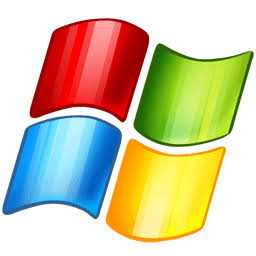I’ve always flunked at math; and knowing how intertwined programming is with math, I’m skeptical of my ability to learn how to code. Can someone be too dumb to learn programming? If it helps, I’m mostly interested in learning Common Lisp.

Yes. But are most managers too dumb to figure out that you can’t program? Also yes.

I was gonna suggest there might be a “too dumb to program for the profit of others”, but … yeah, even if your pay and code is a financial detriment, we can pretty much promise it’ll be an insignificant portion of the money that company is costing itself. You gotta eat, and practice is practice.
That said, advice remains the same: program on company time towards a path you don’t care about beyond covering your ass and trying to deliver what’s been demanded(I’m not saying don’t do your best, just keep it to what you can do on the clock), and see that as practice for passion projects on the side. Save a little bit of that no-fucks-given/objectivity for objectively testing and fixing your code - fix it like someone else made the mistake, and you can do it better, but at the same time something must ship(don’t let perfect be the enemy of good).

Math is less important than logical thinking which often, but not always, goes with math skills. More important still is intellectual curiosity. Do you like solving puzzles? Do you like the feeling of breakthrough after a frustrating struggle figuring out how something works? Those will take you a long way.

Math knowledge is not essential; but really useful in programming as you’re trying to make the computer do calculations of some sort.
Someone could definitely be too dumb to code though.

80% of programming jobs will only require basic maths.
A lot of the time you’re glueing together libraries written by much smarter people haha
It’s more about logic than maths. People absolutely can find it too hard.

Programming success is more closely associated with language skills than math skills.
Yes, if you need to invent a new algorithm you’ll need math. Computer Science is definitely mathematics heavy.
But writing a program is all about expressing your intent in a programming language, step by step. It’s about “communicating” with the machine (and your users).
All this to say, I got C- and D grades in my math courses in college and still became a successful computer programmer. I’m not pushing the boundaries of computation, but if you need an app for your business, I can build that for you in a reliable, tested, and flexible manner.
Edit: Also! I love Common LISP. It’s such an amazing language and I’m so sad that it isn’t more popular in the industry.

But writing a program is all about expressing your intent in a programming language, step by step. It’s about “communicating” with the machine (and your users).
And your coworkers, and ‘you a year from now’. For the love of god have some compassion with ‘you a year from now’ and save him a day of debugging.
- Omega_Haxors ( @Omega_Haxors@lemmy.ml ) 7•1 year ago
No, as evidenced by basically the entire industry. Don’t fret it, all you have to do is be smarter than your boss, and that’s fucking easy.

Nah, no need to worry. I’ve got a friend that was bad at math and therefore dismissed a career as programmer initially. Eventually, he just couldn’t ignore how much programming interested him and did start a Bachelor’s degree in Computer Science (after disliking his first year of Finance). A couple of years later and he’s the proud owner of a Master’s degree in Computer Science while still being relatively bad at math, but it didn’t stop him. Nor should it stop you.

I’m glad it worked out for your friend! However, I’ve got to know, why did they choose to pursue Finance of all things if they didn’t like math??

Since childhood, they wanted to become the head of a bank; this wish -however- was more rooted in the (childish/immature) association that being at that position should mean that they’ve made it (monetary-wise). So, they started Finance with the belief that it would be the best step to attain that goal. Furthermore, I believe they had misinformed ideas on what studying Finance was at the time 😅,

Usually when people say “I suck at maths”, it means that they are bad at doing manual calculus. Maths is extremely useful in programming, but it’s absolutely not the same kind of math. I don’t think that the grade you had in math at school will influence in any if you will be good or bad in programming.

I am not particularly good at math myself, but I like to program stuff… If I am any good at it… decide for yourself: https://github.com/matejc?tab=repositories … anyway, if you have interest of doing something, stop the doubt, just do it.

Like with anything, you will not know if you are going to be good at it until you spend a lot of time trying and failing and learning. If you enjoy it, just keep doing it.

Have you even heard of systemd? Of course you can’t be too dumb for programming. Be lucky enough and you can build the cancer that will slowly grow and eat a hundred distros.

ELI5?

babyrage
systemd is an init system that is super popular because it is so not shit and does what people want, and has adjacent projects that interface with it nicely
some people want more variety but put their effort in an unproductive direction

How does a great popular system has anything to do with “dumb”?

It’s that unproductive direction content. It doesn’t. Some people just want to hate things.

Have too low IQ? Yeah sure, I guess.
Be slower at it than the norm? Absolutely.
I only learned Algebra by learning programming and through that I learned how to think abstractly (abstract just mean “hiding details” - think of how a child draws a car. You can’t tell it’s colour, brand, model, etc, yet you can tell it’s a car, even though all those details are hidden). Once I got that, I was able to follow videos from MIT that taught me more of the maths, giving me a theoretic foundation for programming. Now I’m doing an Algorithm course (also MIT) and feel like an “actual programmer” (because I felt like a “fake programmer” before that - though that still sometimes returns). After that I intend to learn more about SQL because I’m painfully lacking in that regard.
Anyway, I’ve been at it since 2005 when I was a 20-something kid, and there’s always something new to learn.
FYI: I made a dependency graph of a bunch of freely available MIT courses, left is a dependency for stuff on the right: https://thaumatorium.com/articles/mit-courses/

Woah, you feel like an actual programmer? I thought we were all stuck with imposter syndrome forever!

I failed math 3 years in a row in high school and I made plenty of minecraft clones using nothing but logic and basic algebra. Math isn’t as important to programming as people say, I still can’t do division or multiplication on paper, but in a program, I can make it do that for me.

Let’s see. I don’t like math syntax. And you can hound me with Haskell. But i like Python and Rust and Shell. So i guess, not generally.

What even is “learn how to code” these days? I work in PowerShell, Shell, Docker Compose, and various xml, yml, json config files. Do I code? When I debug a particularly nasty DNS bug using netcat, dig, nsupdate and other tools it certainly feels like when I was coding Java. And when I push a CI-CD workflow to our tools git repo I work in many of the same tools as the Developers. But I’m not even sure I’d call what I do coding.
That said you can be too “dumb” (hate that word) or rather disadvantaged that you can’t figure out doors and then coding is probably a step too far. But if you can grasp the English language and use it to construct sentence and describe a work task to a colleague for them to perform with it then you can certainly learn how to build at least simpler programs in a programming language, it’s really not all that different. It’s the language of how to tell a computer to solve a task.

